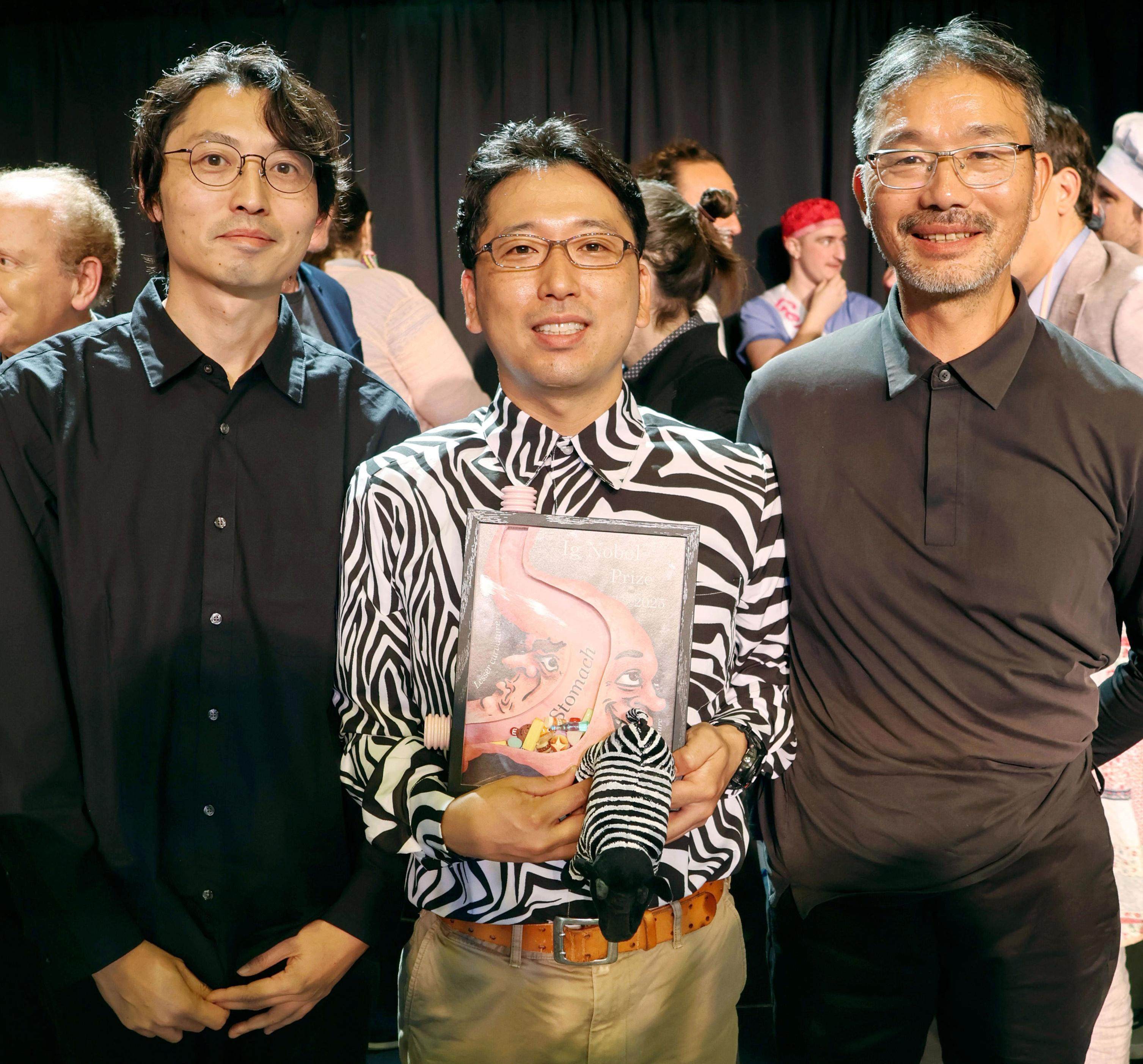By SCMP’s Asia desk
Copyright scmp

A Japanese research team that painted cows with zebra-like stripes to protect them from biting flies has received this year’s Ig Nobel Prize in Biology, marking the country’s 19th consecutive win at the tongue-in-cheek science awards.
The prize, awarded in a ceremony at Boston University on Thursday, honours research that “first makes people laugh, then makes them think”.
While painting cows like zebras may sound absurd, the research points to a serious application in chemical-free pest control, with evidence that the technique could reduce stress in livestock and improve their health.
Lead researcher Tomoki Kojima, now affiliated with Japan’s National Agriculture and Food Research Organisation, first trialled the method on six Japanese Black cattle, a Wagyu-producing breed prized for its marbled beef.
In the study, two cows were painted with white zebra-like stripes using water-based pigment, two were painted with black stripes that blended with their natural coat and two were left unpainted. All were then observed for how often flies landed on them and how frequently they exhibited irritation behaviours, such as tail flicking and head shaking.
The findings were striking: the zebra-striped cows had about half the number of fly landings compared with both control groups. They also performed fewer avoidance movements, suggesting reduced stress.
“We are deeply honoured to have received this award,” Kojima said during his acceptance speech at the whimsical event. As he spoke, two of his colleagues, dressed all in black, waved oversized fly puppets around his head. He then took off his jacket to reveal a zebra-striped shirt he used to repel the fake insects, in a humorous nod to his research.
The study drew widespread attention both in Japan and abroad, particularly after farmers in Yamagata prefecture began adapting the technique in 2023 and 2024. In some cases, cattle were treated with mild bleach or white spray paint to mimic the zebra pattern.
An official from Yamagata’s agricultural promotion section told the Mainichi newspaper last year: “Many farmers have hesitated to release their cattle on farmland because they feel sorry for the animals being targeted by gadflies … but we can now expect cattle to relax and grow healthily if we give them stripes.”
Field observations supported the lab results. In 2024, researchers in Yamagata found that striped cows performed fly-avoidance behaviours only five times per minute, compared with 16 times per minute for unpainted animals. Farmers also reported qualitative improvements in livestock behaviour.
The exact reason why stripes deter flies is still under investigation. One prevailing theory, backed by a 2014 study by evolutionary biologist Tim Caro, suggests that the visual contrast interferes with the insects’ ability to land – a mechanism that may help explain why zebras evolved their iconic coats. Kojima cited Caro’s work as the inspiration for his research.
While the method has obvious practical appeal, scalability remains a challenge. Painting cattle – especially in large herds – is time-consuming. Still, for small-scale or organic farms, it may offer a low-cost, environmentally friendly alternative to chemical repellents.
Japan’s streak of Ig Nobel recognition now stands at 19 consecutive years, with past honours spanning everything from animal biology to musical innovation. In 2024, researcher Takebe Takanori won the Physiology Prize for demonstrating that many mammals are capable of breathing through their anus. Back in 2004, Daisuke Inoue received the Peace Prize for inventing karaoke – celebrated by the organisers as “an entirely new way for people to learn to tolerate each other”.
Other 2025 winners included a team from Togo and Italy who discovered that rainbow lizards strongly prefer four-cheese pizza over other foods, as part of a study aimed at understanding how urbanisation affects wildlife diets, as well as a UK-Germany research team who received this year’s Peace Prize for demonstrating that consuming small amounts of alcohol can improve pronunciation in a second language.